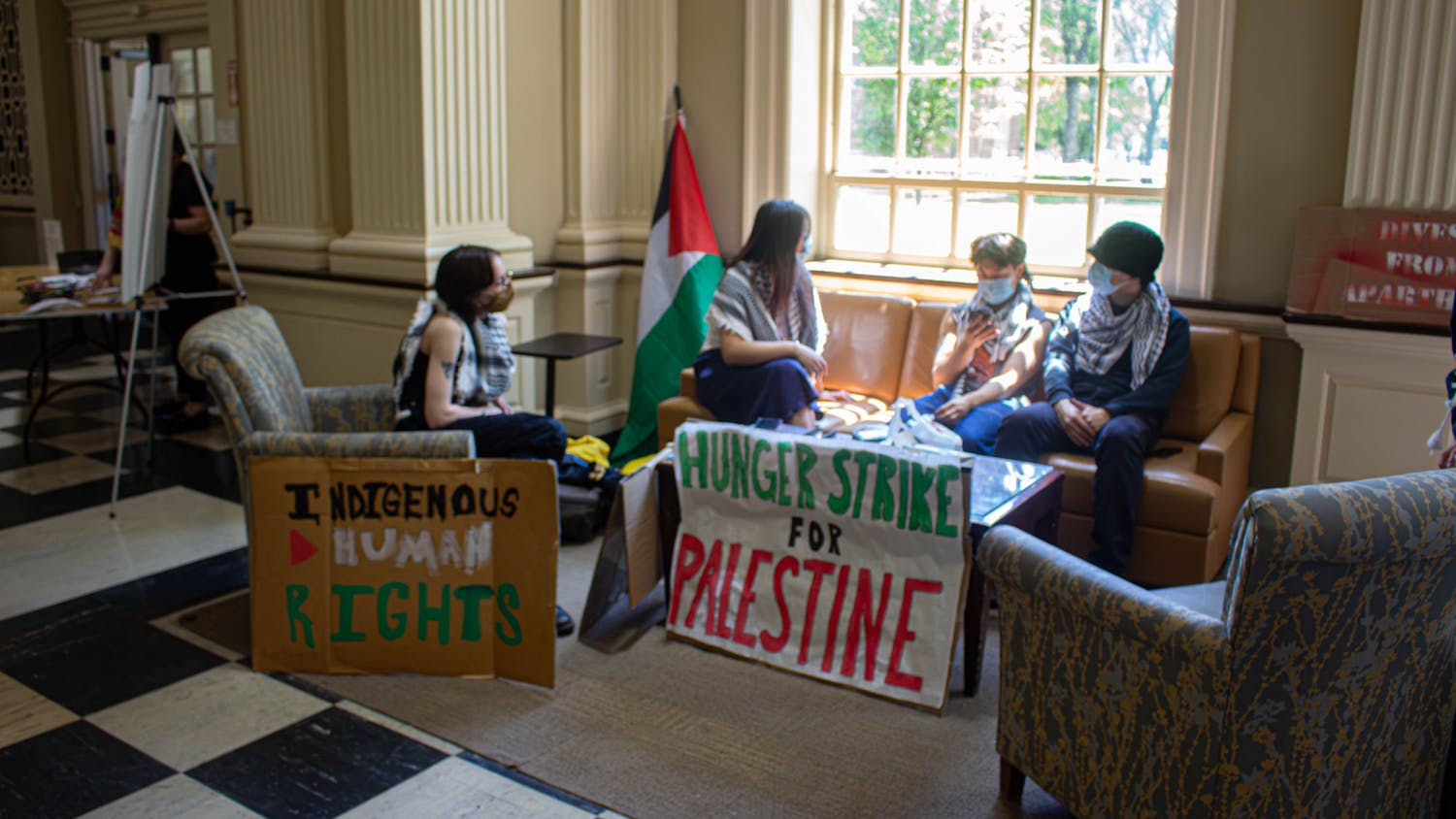More than 20 Dartmouth students and alumni participated in a peaceful protest rally in Washington, D.C. this past weekend.
The students marched in association with Peaceful Justice at Dartmouth, a new addition to the College's political scene. Established only two weeks prior to the D.C. event, PJD worked in conjunction with the Campus Greens to organize the trip. Participants spent the weekend in the rally and in teach-ins sponsored by the Washington Peace Center.
The rally, organized by the American Friends Service Committee, was attended by thousands of college students and activists from across the nation. Police estimated the number of participants between 7,000 and 25,000.
In contrast to the April 2000 protests in front of the World Bank, relatively few arrest were made this weekend. D.C. law enforcement had undergone intense training during the past 16 months to prepare for possible attacks against residents and tourists.
Those who marched from Freedom Plaza to the steps of the Capitol sought not only to encourage peace in the United States' war against terrorism but also to convey a message of anti-racism. The issue of hate crimes against Muslims and Arab-Americans was particularly in focus.
Protesters condemned various international crises -- including U.S. Navy intervention in the Philippines and the Vieques bombings -- in addition to President Bush's handling of the crisis in Afghanistan. The rally's original objective was to protest the World Bank and International Monetary Fund's policies in third-world countries. In light of the Sept. 11 tragedy, this mission was largely forgotten.
In response to a widespread perception of the protesters as pacifists, PJD's Paul Marino '04 said, "we want certain people to be held responsible ... we do not want inaction."
Peaceful Justice was first established at Wesleyan University to put pressure on the U.S. government to arrive at peaceful solutions in international affairs.
"Dartmouth has this conservative reputation," said Campus Greens member John Brett '00, "but [the College] is already a part of the Green movement." The Greens' focus is on U.S. foreign policy, the need for economic sustainability and increased communication between government and citizens.
The "Bread, Not Bombs" program, inspired by the Greens, is a new activity on campus that serves to promote cultural understanding and integration by the symbolic act of breaking bread. Dartmouth students and Upper Valley residents alike bake bread and share it with their neighbors. Leftover loaves are then distributed to local charities.
"The U.S. should learn how to combat terrorism with [such] humanitarian aid," Brett said. "No more would terrorists be able to set us up as the great demon."



